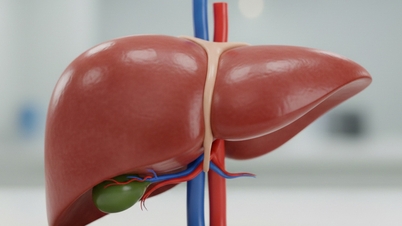However, if it lasts too long, napping can pose risks, from increased risk of heart rhythm disorders, high blood pressure to sleep biological disorders. Therefore, determining the right nap duration will help optimize this precious rest time, according to the health website Healthline (USA).

Taking a proper nap brings many benefits to the body.
PHOTO: AI
If you nap for too long, your sleep will enter a deep sleep stage. When you wake up during this stage of sleep, your body will easily fall into a state of drowsiness, lack of alertness, fatigue and lethargy.
In fact, a 15 to 30 minute nap is considered the optimal nap duration. Sleep not only helps you stay alert, increase your work and study performance, but also improves cardiovascular factors, such as blood pressure.
In a study published in the journal Obesity , scientists at Brigham and Women's Hospital (USA) surveyed more than 3,200 healthy adults. The results showed that people who napped for less than 30 minutes had a lower risk of high blood pressure than those who did not nap. In contrast, napping for longer than 30 minutes was associated with a higher risk of high blood pressure, high cholesterol and high blood sugar.
Nap 1-2 days/week
In addition, some research evidence also shows that napping 1-2 days/week reduces the risk of cardiovascular events such as heart attack and stroke by up to 48%. However, napping is good but should not be done every day.
Research published in the journal Heart found that napping 1-2 days a week will bring optimal benefits to the cardiovascular system. Napping 6-7 days a week not only brings no benefits but also has a negative impact on cardiovascular health.
The ideal time to take a nap is midday or early afternoon, between 1 p.m. and 3 p.m. Sleeping after this time can disrupt your circadian rhythm and affect your main sleep at night, according to Healthline .
Source: https://thanhnien.vn/ngu-trua-bao-nhieu-phut-la-tot-cho-tim-185250903184044358.htm


![[Photo] National Assembly Chairman Tran Thanh Man attends the VinFuture 2025 Award Ceremony](/_next/image?url=https%3A%2F%2Fvphoto.vietnam.vn%2Fthumb%2F1200x675%2Fvietnam%2Fresource%2FIMAGE%2F2025%2F12%2F05%2F1764951162416_2628509768338816493-6995-jpg.webp&w=3840&q=75)



![[Photo] 60th Anniversary of the Founding of the Vietnam Association of Photographic Artists](/_next/image?url=https%3A%2F%2Fvphoto.vietnam.vn%2Fthumb%2F1200x675%2Fvietnam%2Fresource%2FIMAGE%2F2025%2F12%2F05%2F1764935864512_a1-bnd-0841-9740-jpg.webp&w=3840&q=75)




































































































Comment (0)